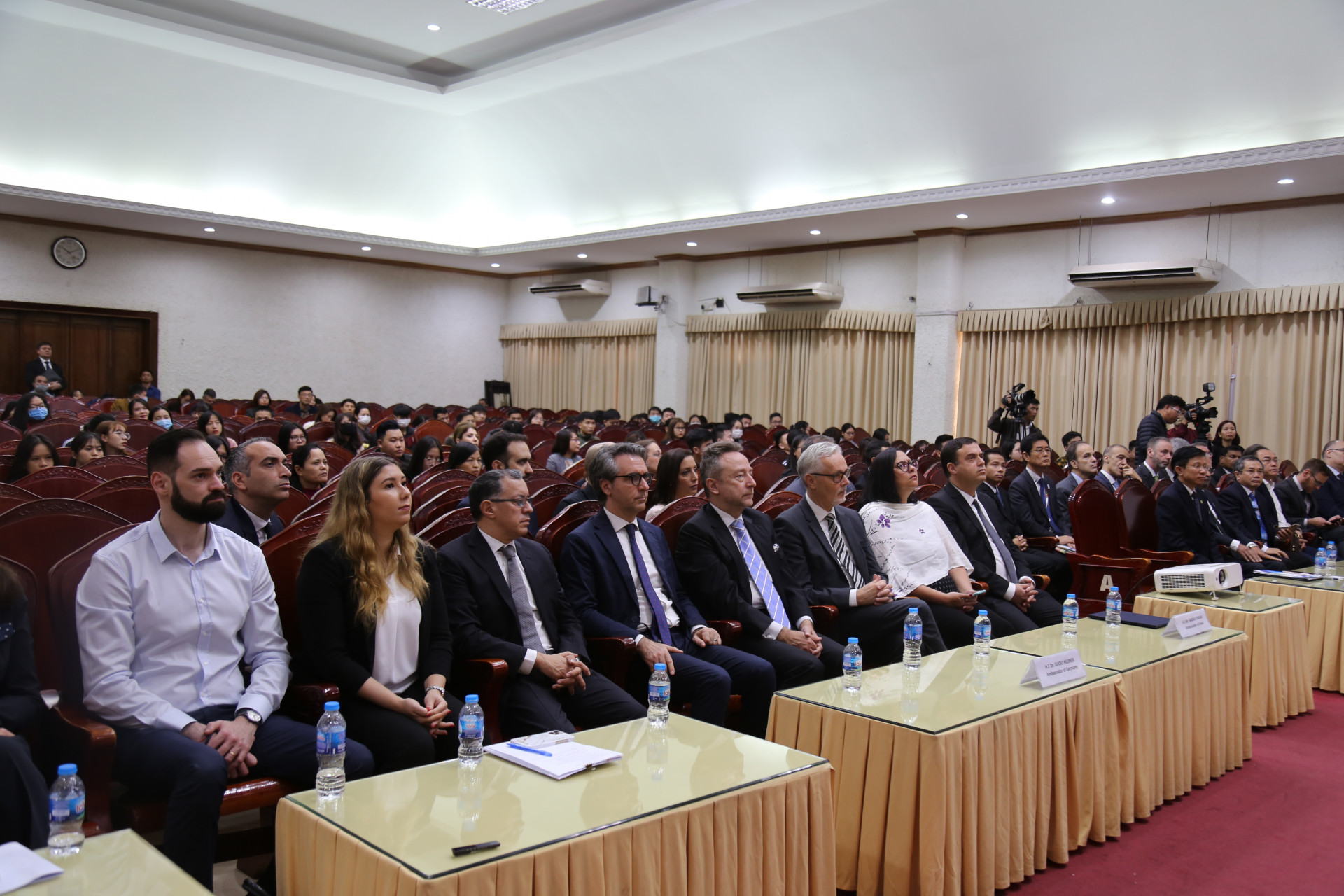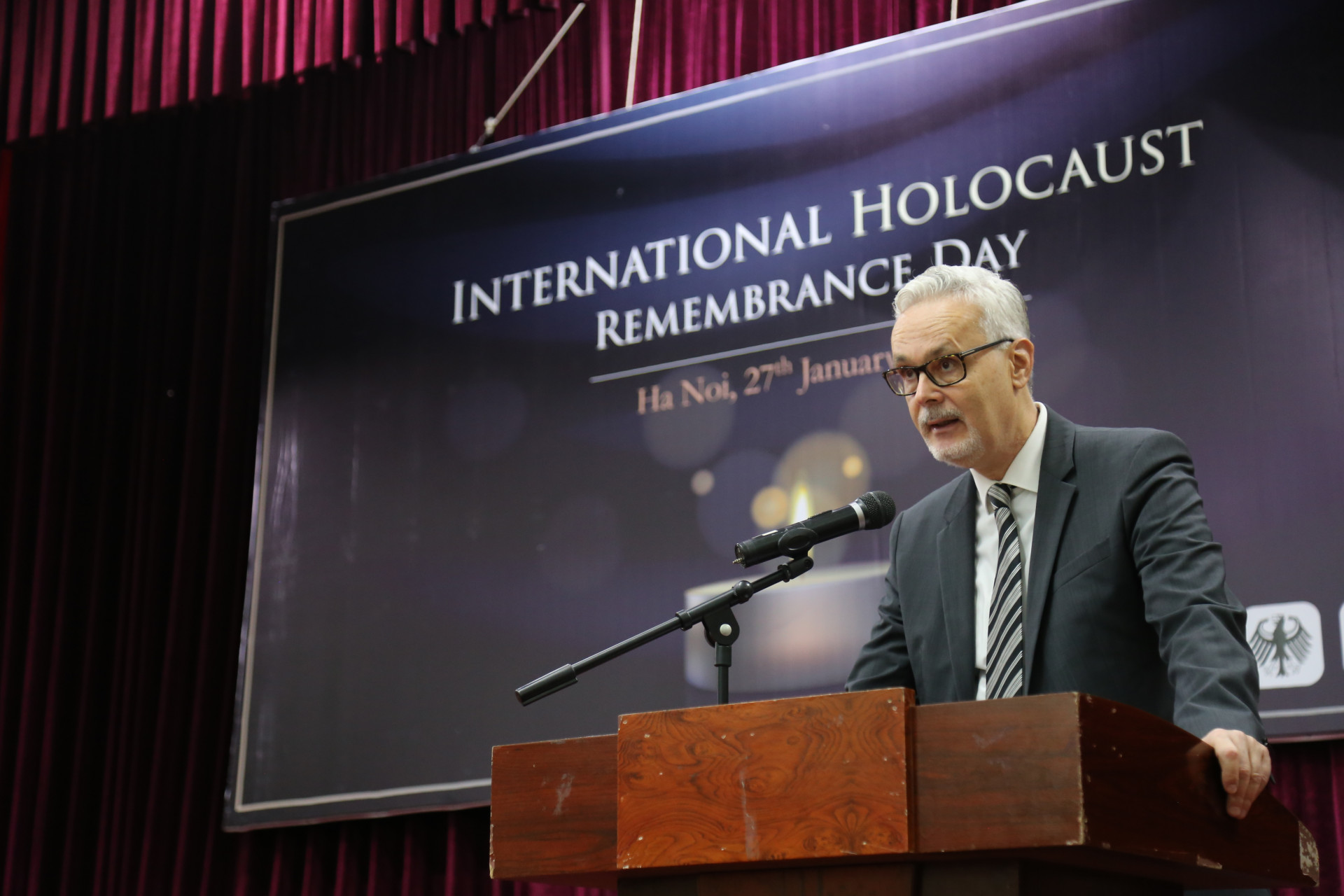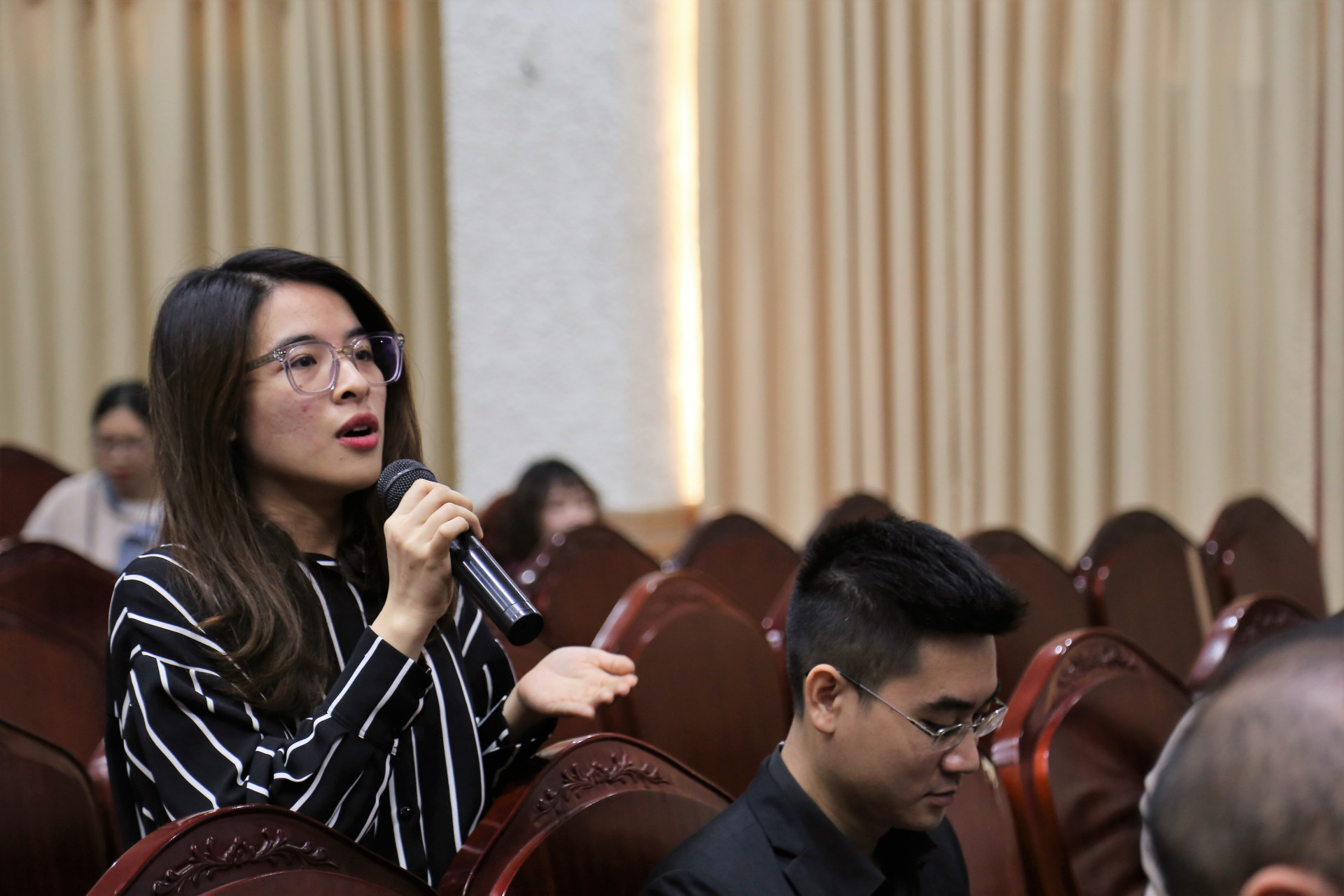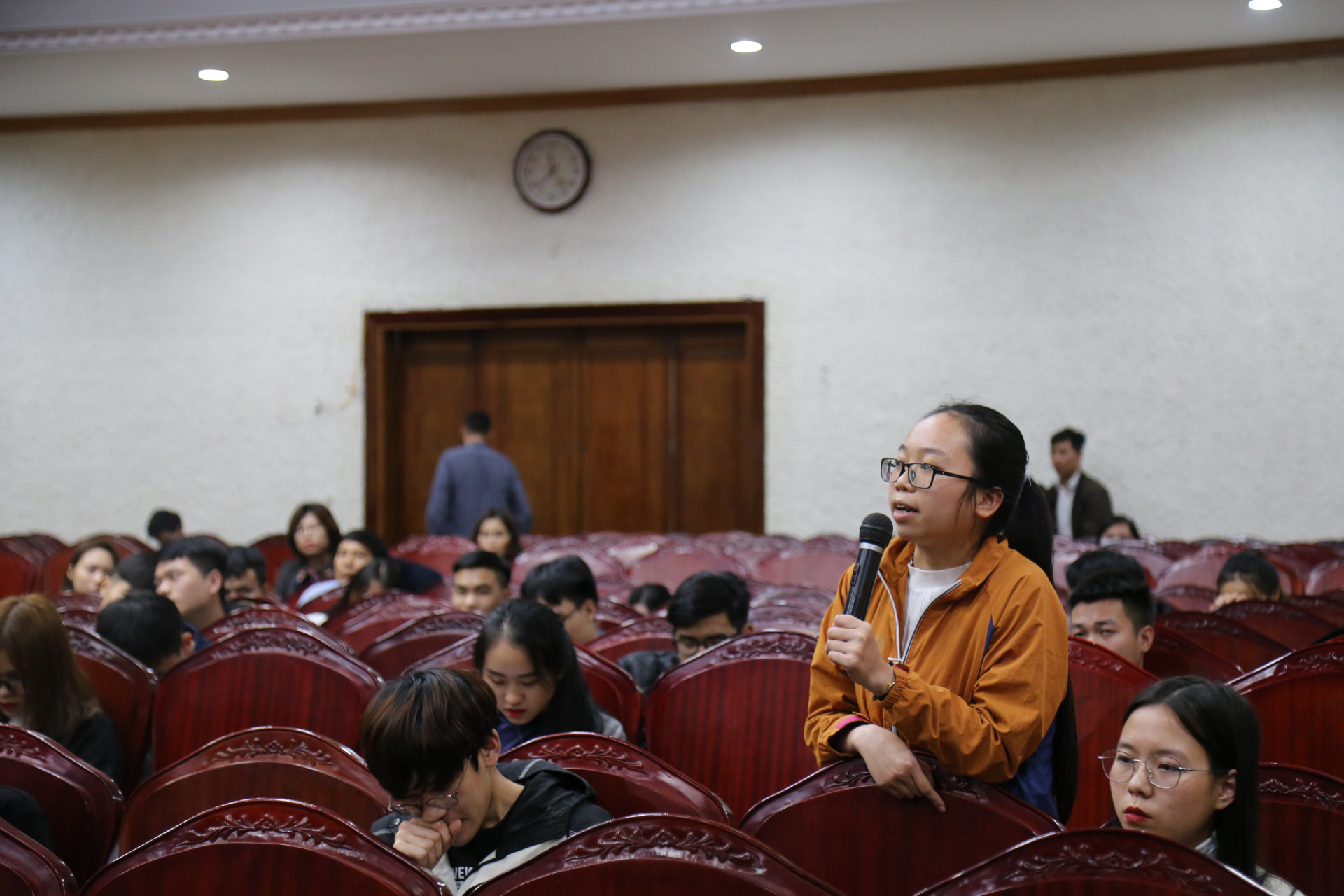Attending the ceremony were Prof. Dr. Hoang Anh Tuan (Vice Rector in charge of the University of Social Sciences and Humanities), Mr. Nadav Eshcar (Ambassador of Israel to Vietnam), Dr. Guido Hildner (Ambassador of the Federal Republic of Germany to Vietnam), Mr. Kamal Malhotra (Chief Representative of the United Nations in Vietnam) and representatives of diplomatic units and international organizations.
January 27 was designated by the United Nations General Assembly as the annual international day to commemorate the Jewish victims of the Nazi massacre, called Holocaust Remembrance Day. During World War II, more than 6 million Jews were murdered by Nazi Germany in Europe simply because they were Jews. The annual Holocaust Remembrance event in Vietnam aims to help Vietnamese people gain more understanding and sympathy for the Holocaust victims, contributing to pushing back anti-Semitism.
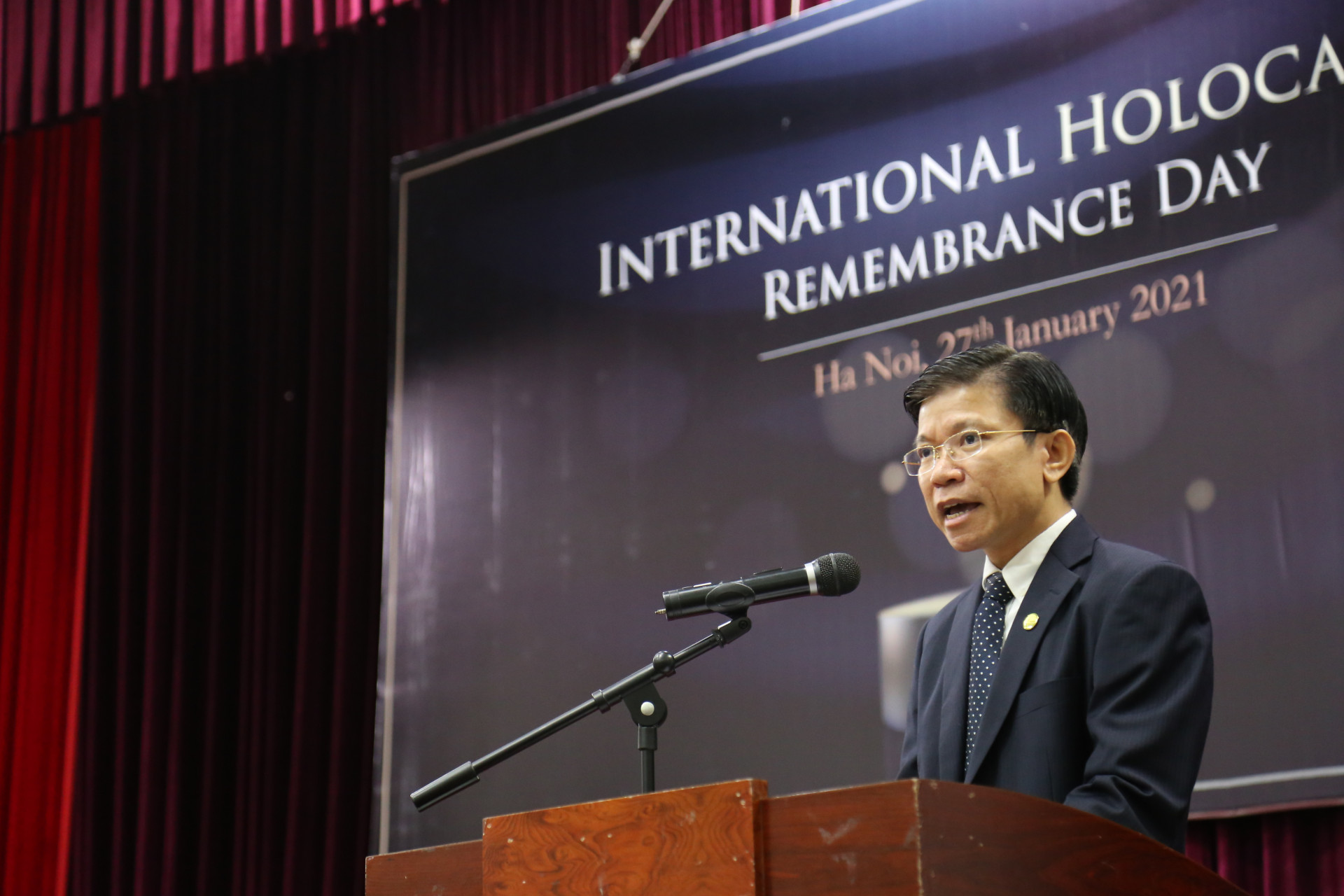 Prof. Dr. Hoang Anh Tuan speaks at the ceremony
Prof. Dr. Hoang Anh Tuan speaks at the ceremony
Speaking at the ceremony, Prof. Dr. Hoang Anh Tuan (Vice Rector of the University of Social Sciences and Humanities) emphasized the significance of the Holocaust Memorial Ceremony, as an activity to review a historical period in which millions of people were murdered by the Nazis during World War II. This event also reminds today's generation to join hands to prevent crimes and brutality from recurring in a similar tragedy.
Prof. Dr. Hoang Anh Tuan also highlighted the importance of international cooperation, education, law, and security in building trust, resolving conflicts, and building a culture of dialogue to promote human rights values. Education and dialogue between countries and international organizations are important foundations for a tolerant and peaceful society. For the school's staff and students, this event was an opportunity to better understand the Holocaust through sharing from representatives of embassies in Vietnam and watching documentaries.
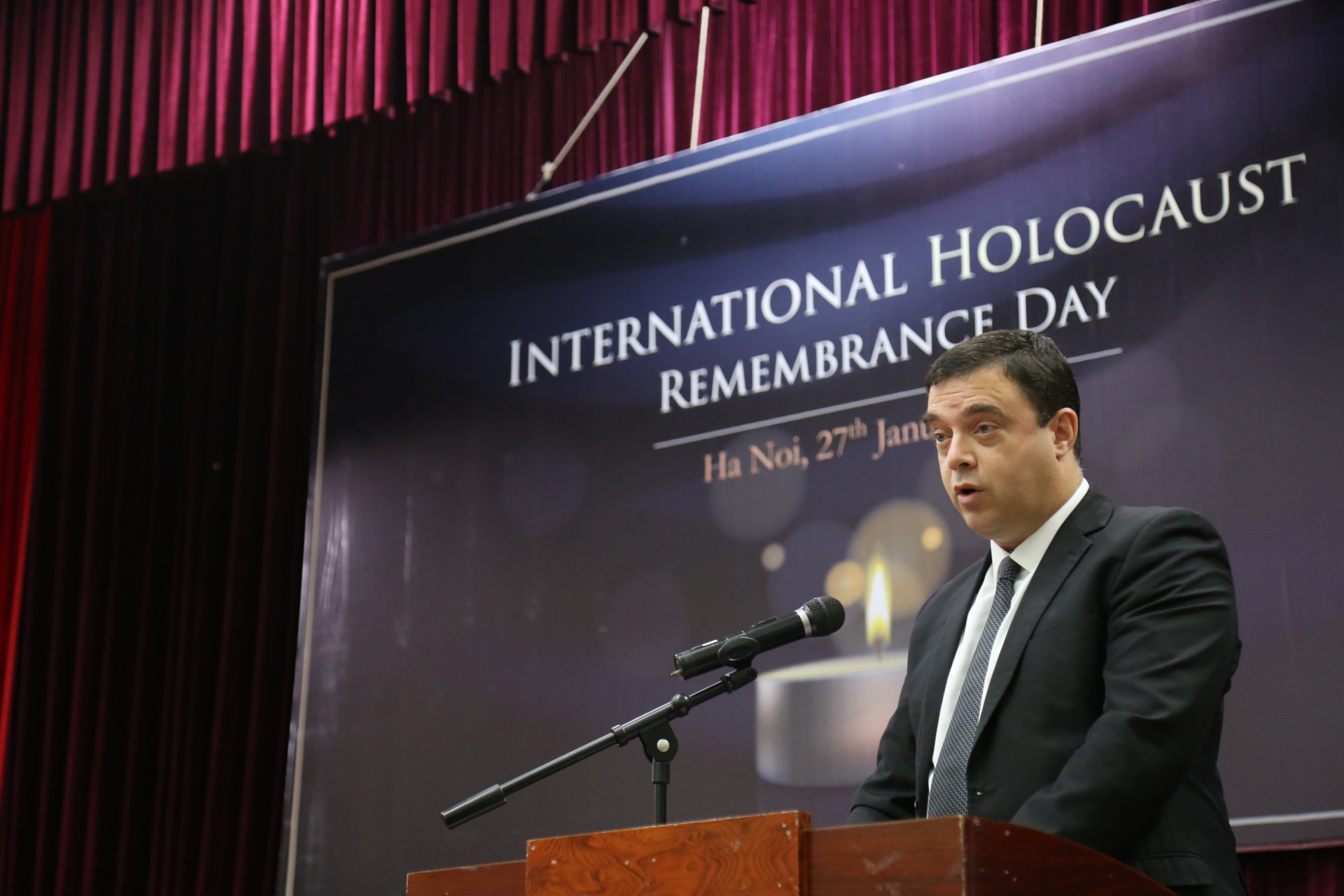 Ambassador Nadav Eshcar speaks
Ambassador Nadav Eshcar speaks
Israeli Ambassador to Vietnam, Mr. Nadav Eshcar shared: The Holocaust was not an emotional decision, but was made within the framework of systematic and rigorous consideration by the Nazis, targeting all social classes in the Jewish community. If they had the upper hand in World War II, the Nazis would have completed their work quickly and many people would not have been lucky enough to survive to this day. He said that the Holocaust remains one of the most horrifying disasters of humanity, and in the future there is still the possibility of such a tragedy happening. Therefore, each person needs to be responsible for ensuring that it will never happen again.
Ambassador Guido Hildner speaks
Dr. Guido Hildner, Ambassador of the Federal Republic of Germany to Vietnam, confided that the Holocaust was the darkest period, an undeniable truth in the history of Germany. Therefore, the Federal Republic of Germany has boldly acknowledged its responsibility in history and made many efforts to compensate for the losses of the Jewish community. In which, the memorial activity is very important, to express respect for the honor of those who sacrificed in the disaster, so that their names are not erased, not forgotten.
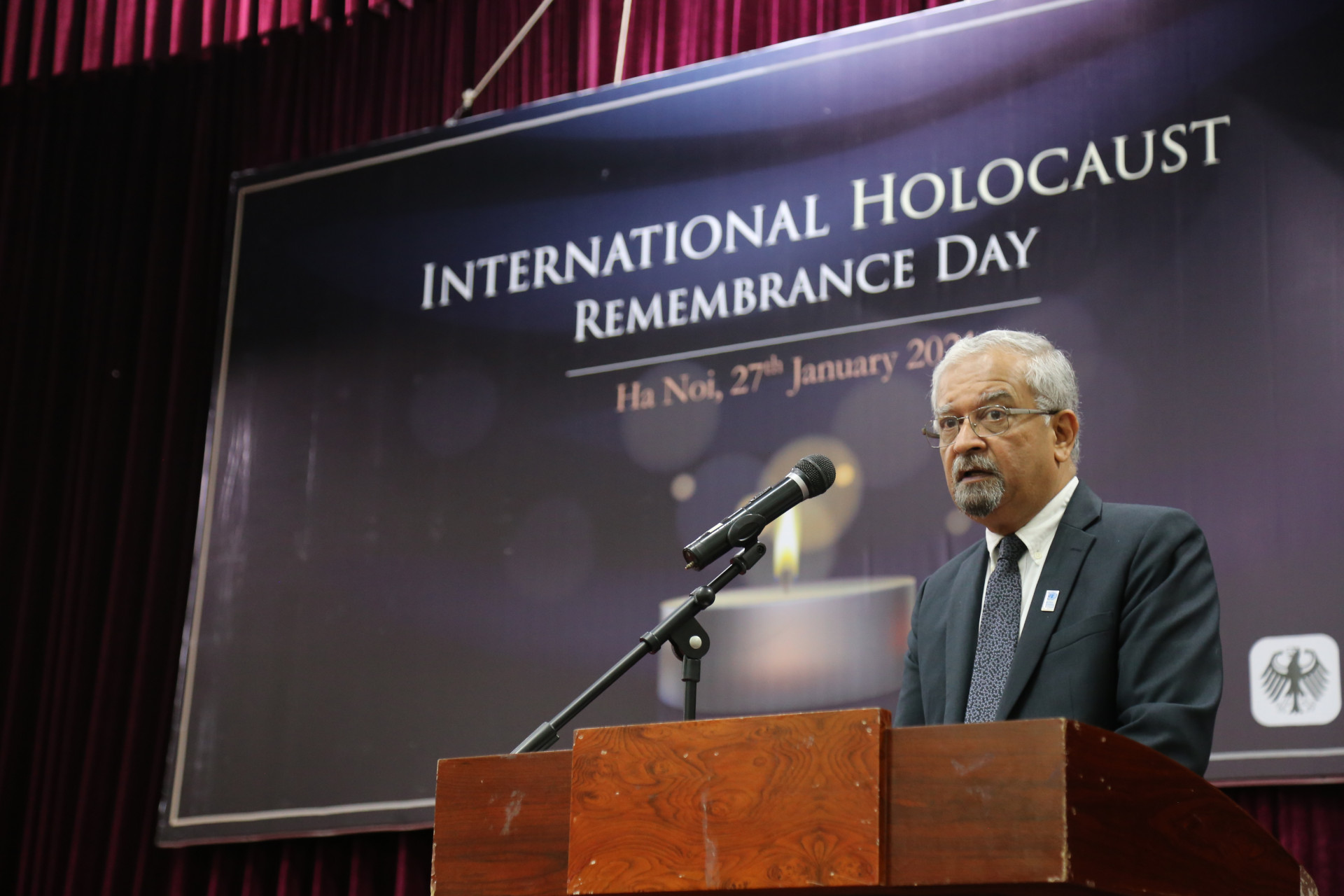 UN Representative in Viet Nam Kamal Malhotra speaks
UN Representative in Viet Nam Kamal Malhotra speaks
On behalf of the United Nations in Vietnam, the Chief Representative of the Organization, Mr. Kamal Malhotra, quoted the message of the UN Secretary-General that, during the Covid-19 pandemic, long-standing cracks and injustices have been exposed, contributing to the rise of anti-Semitism and xenophobia. That shows that anti-Semitism and the Holocaust arise from long-standing prejudices, from ignorance, resentment, and widespread corruption in society, not just the mistakes of a few individuals. To contribute to repelling it, the participation of all components of society is needed. Countries need to eliminate hatred and discrimination to build inclusive, diverse societies that respect human rights. For its part, the United Nations will continue to stand for the truth and fight against lies, bigotry, anti-Semitism and hatred. Creating a world of equality and justice is the best way to remember the victims of the Holocaust.

Prof. Dr. Hoang Anh Tuan, on behalf of the University, lit candles in memory of Berta Pik, a woman murdered at Auschwitz concentration camp, Poland in 1944.
After the speeches, delegates held a symbolic candlelight vigil in memory of Holocaust victims, a tradition in Israel and Jews around the world.
Next, the delegates watched the documentary “Vernichtet” (Murder). The film directed by Andreas Christoph Schmidt tells the story of the widow Rosa Labe and her three children in the village of Glambeck, Brandenburg, Germany. Since 1938, the Labe family was torn apart by the Nazis, exploited in many different places, and used as labor tools. The members were separated and lost. The Labe family’s painful journey is a typical example of what the victims of Nazi Germany had to go through.
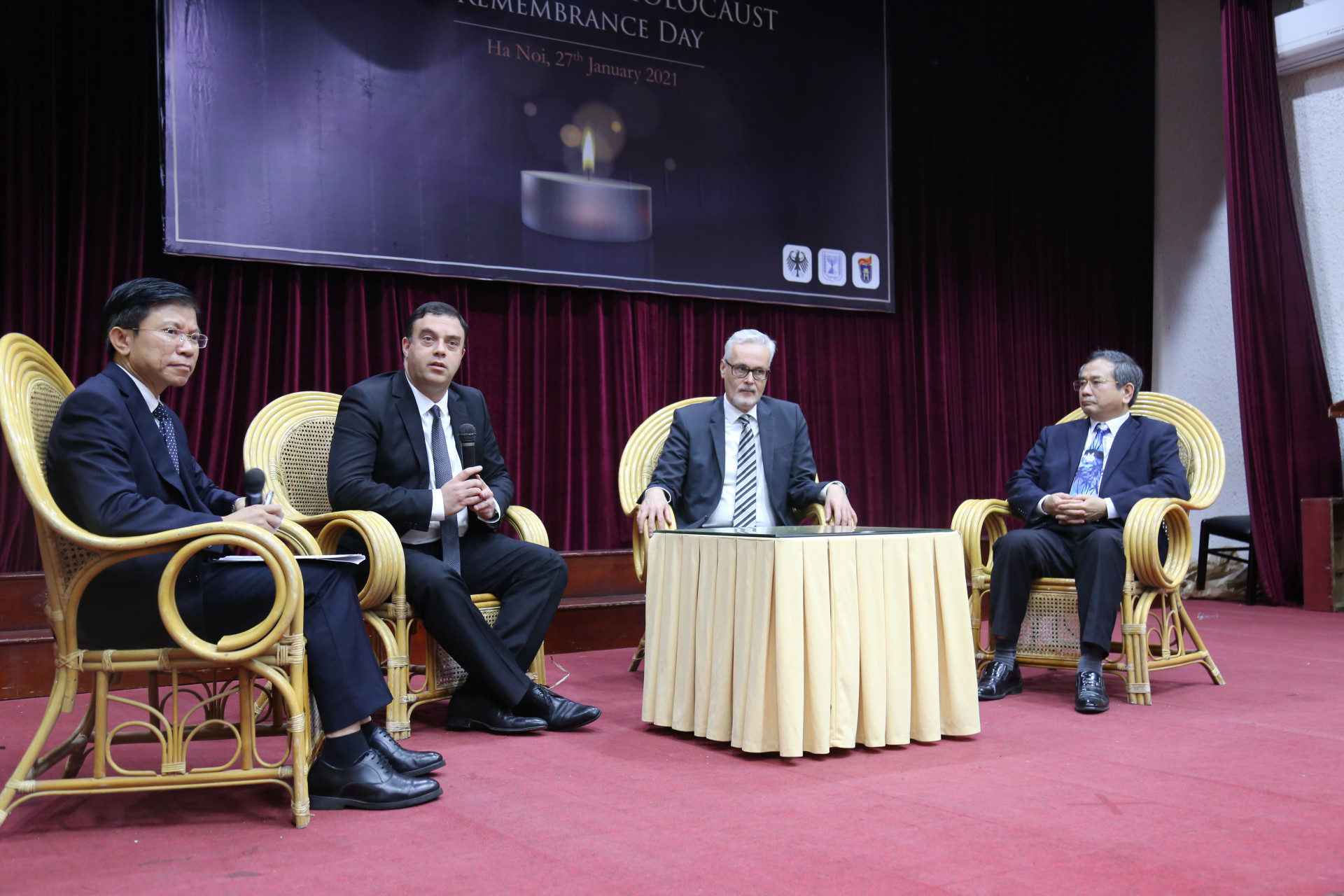 Delegates participating in the discussion with students, from left to right: Prof. Dr. Hoang Anh Tuan (Vice Rector of the University of Social Sciences and Humanities), Mr. Nadav Eshcar (Israeli Ambassador to Vietnam), Dr. Guido Hildner (German Ambassador to Vietnam), Prof. Dr. Pham Hong Tung (Director of the Institute of Vietnamese Studies and Development Science, VNU)
Delegates participating in the discussion with students, from left to right: Prof. Dr. Hoang Anh Tuan (Vice Rector of the University of Social Sciences and Humanities), Mr. Nadav Eshcar (Israeli Ambassador to Vietnam), Dr. Guido Hildner (German Ambassador to Vietnam), Prof. Dr. Pham Hong Tung (Director of the Institute of Vietnamese Studies and Development Science, VNU)
During the discussion, students from the University of Social Sciences and Humanities expressed their feelings and thoughts about the film as well as the Holocaust with the ambassadors and professors. The students were deeply impressed and moved by the fate and survival efforts of the Jews who were brutally treated during World War II. At the same time, they also linked this disaster to similar events that happened in Vietnam and neighboring countries. As a young generation born in peacetime, the students did not forget their role in understanding, appreciating the past and drawing lessons to create a better future. Some questions were sent to the delegates on issues such as: education and propaganda about the Holocaust in Germany and Israel; the current state of anti-Semitism in Germany today; the contributions of the young generation to the wounds left by hatred and war, etc.
School students ask questions to delegates

